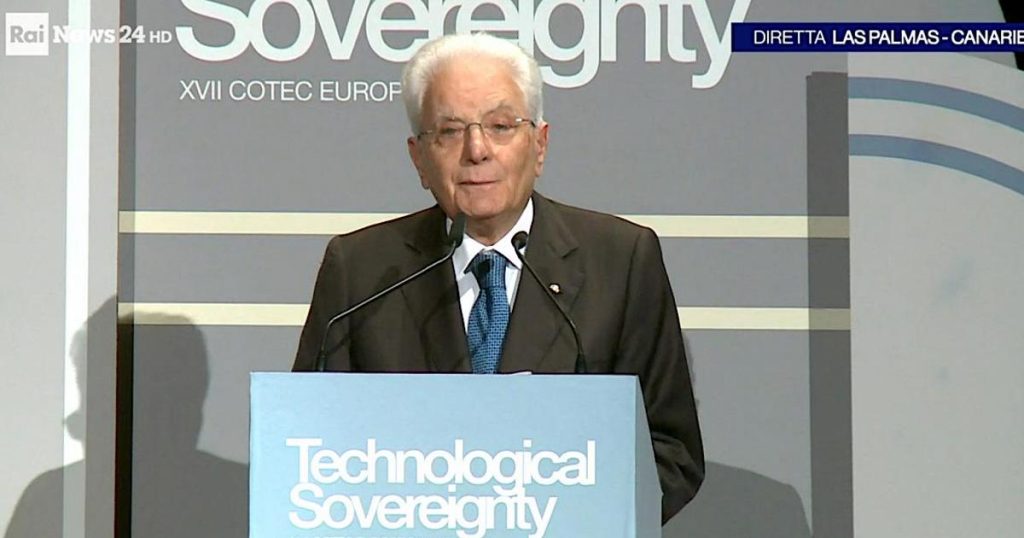The concept of technological sovereignty, as outlined by President Sergio Mattarella in a recent speech, does not entail isolation, protectionism, or closing off borders. Rather, it is an opportunity to strengthen research efforts and embrace the digital transition, harnessing the benefits of artificial intelligence to manage the significant changes it brings about. The appointment of a specific European Commissioner for technological sovereignty, Henna Virkkunen, highlights the importance of this endeavor. Emphasizing the importance of openness and inclusivity in international scientific cooperation, Mattarella stresses the need for innovation to be accessible to all countries, fostering fair and collective development and growth.
Mattarella’s speech underscores the crucial role of technological sovereignty in enhancing Europe’s position in the global economy and ensuring its continued relevance in an increasingly digital world. By investing in research and embracing emerging technologies, the EU can position itself as a leader in innovation and secure its economic future. The appointment of a dedicated commissioner for this task demonstrates the EU’s commitment to staying at the forefront of technological advancements and harnessing them for the benefit of all member states.
The President’s speech highlights the importance of international cooperation in the pursuit of technological sovereignty, emphasizing the need for collaboration and knowledge sharing to address global challenges. By working together with other countries and sharing resources, the EU can leverage the expertise and resources of its partners to drive innovation and tackle shared challenges. This approach ensures that technological advancements benefit not only a select few countries but contribute to the overall development and growth of all nations involved.
The concept of technological sovereignty, as outlined by President Mattarella, is not about closing off borders or protecting domestic industries, but rather about seizing the opportunities presented by the digital revolution. By embracing artificial intelligence and other emerging technologies, the EU can drive economic growth, create new job opportunities, and enhance its global competitiveness. The appointment of a dedicated commissioner for this task signals the EU’s commitment to harnessing the power of technology for the benefit of all member states and ensuring a fair and equitable distribution of innovation.
In conclusion, President Mattarella’s speech at the COTEC meeting in Las Palmas de Gran Canaria highlights the importance of technological sovereignty in shaping Europe’s future. By investing in research, embracing emerging technologies, and fostering international cooperation, the EU can position itself as a global leader in innovation and secure its economic prosperity. The appointment of a European Commissioner for technological sovereignty underscores the EU’s commitment to embracing the digital transition and ensuring that innovation benefits all member states. Through collaboration and inclusivity, the EU can drive collective growth and development, harnessing the power of technology for the benefit of all.


